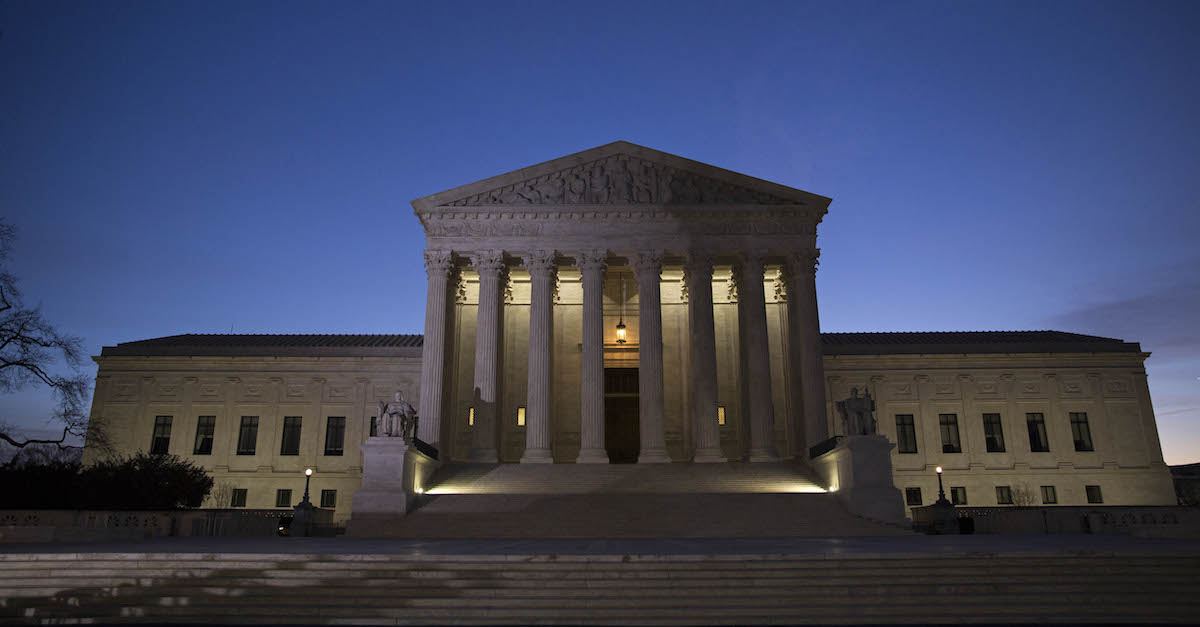
A divided U.S. Supreme Court on Monday refused to either issue a stay or to hear an underlying case which would have delayed executions for federal inmates. Executions are scheduled to resume as early as July 13 under orders issued by Attorney General William Barr. The court’s decision, in a case styled as Alfred Bourgeois, et al. v. Barr, was filed by death row inmates Alfred Bourgeois, Dustin Lee Honken, Daniel Lewis Lee, and Wesley Purkey.
Taking a life is the “most extreme sanction available,” the inmates’ attorneys wrote in seeking to convince the court to take the case, “and the States have far more experience in levying that sanction than the federal government.”
“That is why, in both 1937 and 1994, Congress created a federalist scheme: It mandated that the federal government implement a federal death sentence in the manner prescribed by the law of the State in which the sentence is imposed,” they said (internal citations and punctuation removed). “Yet, in 2019, the Government ignored Congress’s directive and instead announced a uniform, nationwide lethal-injection Protocol for all federal executions.”
And that, the inmates claimed, was the legal problem.
Supreme Court Justices Ruth Bader Ginsburg and Sonia Sotomayor said they would have granted both the stay and the application to take the case as a whole.
The government, straight out of the gate in its reply brief, highlighted the petitioners’ crimes (quotations and citations, again, omitted):
Petitioners are four federal death-row inmates, each of whom was convicted in federal court more than 15 years ago for exceptionally heinous murders in violation of federal criminal law. Petitioner Lee drowned a family, including an eight-year old girl, in a bayou during a robbery to support a white-supremacist racketeering organization. Petitioner Purkey kidnapped, raped, murdered, dismembered, and burned a 16-year-old girl after transporting her across state lines. Petitioner Honken murdered two prospective federal witnesses, along with one of their girlfriends and her two young daughters. Petitioner Bourgeois abused, tortured, and murdered his two-year-old daughter on a United States military base. Petitioners exhausted direct appeals and collateral challenges to their convictions and sentences. The federal government set their executions for dates in December 2019 and January 2020, but the district court entered a preliminary injunction. The court of appeals reversed. Petitioners Lee, Purkey, and Honken are now scheduled to be executed on July 13, 15, and 17, respectively.
The government said the petitioners’ legal arguments were bunk: “no federal execution in the history of the United States has been conducted in accordance with petitioners’ position.”
In a press release attached to the government’s reply brief, Attorney General Barr said as follows:
The American people, acting through Congress and Presidents of both political parties, have long instructed that defendants convicted of the most heinous crimes should be subject to a sentence of death. The four murderers whose executions are scheduled today have received full and fair proceedings under our Constitution and laws. We owe it to the victims of these horrific crimes, and to the families left behind, to carry forward the sentence imposed by our justice system.
[photo by Drew Angerer/Getty Images]
Have a tip we should know? [email protected]